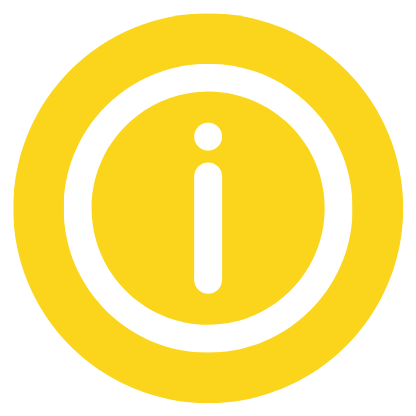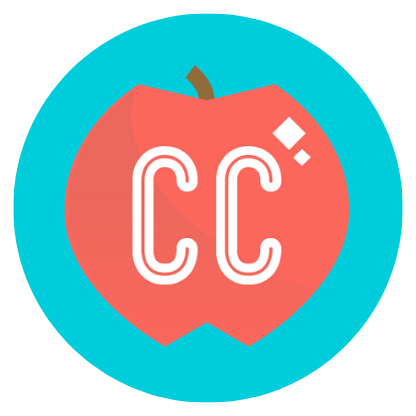Who Can You Trust? Avigating Digital Information #4 | Crashcourse
Reference: CrashCourse. (2019, January 29). Who Can You Trust? Crash Course Navigating Digital Information #4 [Video]. YouTube.
We Make Your Education Count

Get the Credit You Deserve and Become the Most Attractive Job Candidate by Earning and Posting A+ Badges to Your Linkedin Profile.
Sign Up to Get Started at Accredicity
|
Trust the Experts: Uncover the Truth Behind Digital Information with Crash Course Navigating Digital Information #4. In this episode of Crash Course Navigating Digital Information, John Green explores the importance of trusting experts and investigating the authority, process, and systems of sources when assessing the validity of online information. We are encouraged to look beyond a source's presented information, using lateral reading and researching an author's educational and professional background, to determine their qualifications to speak knowledgeably on a topic. Furthermore, evaluating the processes used to produce information and the systems in place to catch and correct mistakes are essential components of determining credibility. By employing these techniques, we can identify trustworthy sources and protect ourselves from misinformation. Learning Outline1. Authority: Understand the professional and educational background of the author or authors, the process used to produce the information, and the systems in place to catch mistakes and correct them. Instructional ContentWho Can You Trust? Crash Course Navigating Digital Information #4 Are you ever unsure if the information you find online is accurate and true? With so many sources of information available, it can be difficult to know who to trust. In this Crash Course Navigating Digital Information video, John Green explores the concept of authority and perspective when it comes to digital information. When looking for reliable sources of digital information, it's important to consider the authority of the person or organization presenting the information. Authority can come from the author's professional background or educational background and can indicate if they are qualified to speak knowledgeably about a topic. Additionally, the process and systems in place to produce and gather the information are important factors to consider. Does the source cite other reliable sources? Are there systems in place to catch and correct mistakes? It's also important to consider perspective when it comes to digital information. Who is the source, and what is their agenda? Are they biased in any way? Lateral reading, or leaving a site to find out what others say about it, can help you understand if the source is presenting accurate information. At the end of the day, it's important to be aware of the information you're consuming and to recognize that not all sources are created equal. By exploring the authority and perspective of the source, you can ensure that the information you find online is trustworthy and accurate. Productivity
|

In this Crash Course, John Green talks about how to know if you can trust the information you find online. He explains that it is hard to know if the information is true or not, and that you have to look for two things to help you decide: the authority of the person or organization giving the information, and what their perspective on it is. To tell if a source is an authority on a topic, you need to do lateral reading and look for things like the author's background and the process they used to produce or gather the information. You also need to look for systems that are in place to catch mistakes and correct them. With this, you can decide if the information can be trusted or not. Video Quotes1. “Nobody is going to be like, “I am not an authority on this topic. Here. Listen to me bloviate.” - John Green 2. “We work hard not to make mistakes or spread inaccuracies, but we don’t always succeed, and corrections are a way for trustworthy institutions to acknowledge their failures.” - John Green 3. “What I’ve just described is not a reliable or responsible news gathering process.” - John Green Related Quotes"We need to develop our critical thinking skills so that we can evaluate information and make decisions based on facts, not just emotions." - John Green "The internet has made it easier than ever to spread false information and to get away with it." - John Green "There's no substitute for doing your own research, and for employing critical thinking skills to evaluate the information you find." - John Green Competencies1. Digital Literacy Learning Outcomes1. Analyze: Explain the process used to assess the credibility of sources and their authority in regards to a given topic. 2. Evaluate: Assess the importance of the public's role in spotting and correcting mistakes made by sources. 3. Apply: Utilize lateral reading techniques to research a source’s expertise in order to determine their authority on a given topic. 4. Create: Develop a system to evaluate the accuracy of information presented, and to ensure that it is coming from a credible source. 5. Understand: Recognize the difference between the author's professional background and the process used to produce information. 6. Remember: Recall the importance of leaving a source in order to understand it, and the various factors to consider when determining if a source is reputable. Sample Answers1. In this video, I learned that one way to determine if a source is trustworthy is to look into the author's professional background, the process they used to produce the information, and the systems in place to catch mistakes and correct them. 2. I also learned that it's important to read laterally to understand a source and not just the information they present. This includes researching an author's credentials, the process they used to produce information, and any corrections that have been made. 3. Lastly, I learned that it's important to consider the perspective of the source and be cautious of any source that does not provide evidence to support their claims. It's also important to note if the source is trying to push a particular agenda or opinion. John GreenJohn Green is an American author, vlogger, producer, and educator. He is best known for his bestselling novel The Fault in Our Stars and for co-creating the YouTube channel Vlogbrothers with his brother Hank Green. He is an expert on digital information literacy and has written several books about the topic, including The Anthropocene Reviewed and Turtles All the Way Down. He is an expert on Who Can You Trust? because he has spent many years researching and writing about digital information literacy and the ethics of media. He is not associated with any organization or business with authority. AssessmentQ: What is the best way to determine if a source is a reliable authority on a particular topic? Answer: A. Assessing the author's or organization's professional or educational background Questions1. What are some strategies we can use to evaluate the authority and perspective of a source of information? 2. How can we use lateral reading to investigate a source's authority? 3. What are some examples of reliable and responsible news gathering processes? 4. What factors should be considered when determining the authority of a source of information? 5. What is the importance of fact-checking in the news gathering process? 6. How can news organizations and other sources of information issue corrections and prevent the spread of misinformation? 7. How can we distinguish reliable sources of information from unreliable ones? 8. In what ways can the public help to point out mistakes in news sources? KeywordsSEO-Optimize Keywords: Digital Information, Navigating Digital Information, Professional Background, Process Used, Systems Catching Mistakes, Authority Person Organization, Perspective Source, Lateral Reading, Jane Goodall, Dwayne The Rock Johnson, Climate Change, Victorian Literature, Conspiracy Theories, Illuminati, Jane Goodall Chimpanzees, Expertise Topic, Investigating Source, Fact Checkers, Professional Journalists, Editors Fact-Checking, Public Letter Editor, Instagrammer Tagging, Editorial Standards, Misinformation Spread, Thought Bubble News, Drudge Report Right-Wing, InfoWars Website, Donald Trump Jr. Facts1. Jane Goodall is an expert on chimpanzees and Dwayne The Rock Johnson is an authority on lifting heavy objects repetitively. Trends1. Create an online quiz to test people on their ability to spot fake news. SourceThis learning instructional guidance was formulated using the GPT-3 language model created by OpenAI. ShareLearn how to spot unreliable sources online to ensure you get accurate information. Look for expertise, research process, and systems in place to catch mistakes. Be mindful of your sources & trust experts with credentials. #socialmedia #informationliteracy #digitalcitizenship 🤔 @Accredicity |








 82 Creds - Productivity
82 Creds - Productivity



